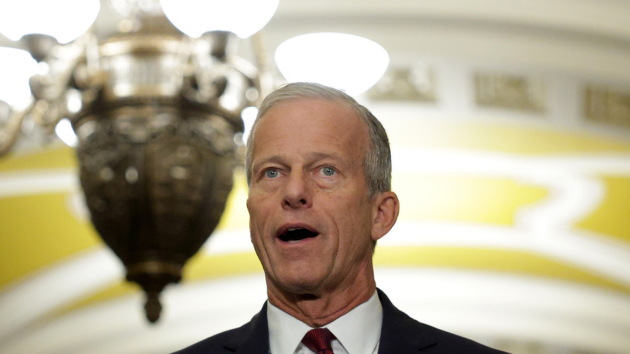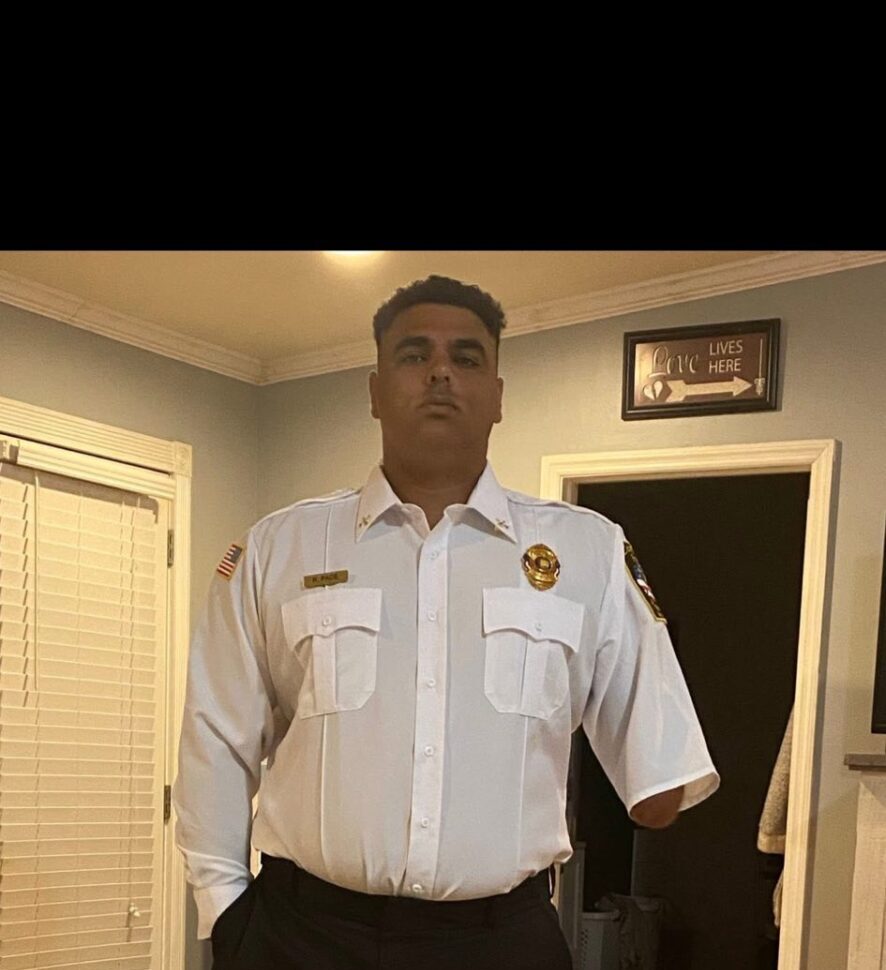
(WASHINGTON) — The Senate on Wednesday took a step toward approving its first appropriation bill, agreeing to advance military construction and Veterans Affairs spending in a 90-8 vote.
But lawmakers have a long way to go to avoid a government shutdown, with 12 appropriations bills to get through before the Sept. 30 deadline.
The House, which has passed two appropriations bills, saw its legislative session ended early by Speaker Mike Johnson amid turmoil over the Trump administration’s handling of the Jeffrey Epstein files.
The Senate is set to begin its August recess next week, though Senate Majority Leader John Thune has kept open the possibility of canceling the weekslong break at President Donald Trump’s request to advance his nominees.
And unlike many of the things that Republicans have done this Congress, passing any of the 12 appropriations bills in the Senate will require 60 votes to pass.
Thune, during an appearance on Fox News’ “Sunday Morning Futures,” said “we’ve got to find a way” to start moving the measures.
“We are going to need to get appropriations done. That will require some cooperation from Democrats and hopefully they will be willing to make sure that the government is funded,” Thune told host Maria Bartiromo.
Democrats seek to strategize on funding
Democrats met behind closed doors on Tuesday to try to hash out a cohesive strategy for approaching government funding ahead of the s
hutdown deadline.
Senate Minority Leader Chuck Schumer and House Minority Leader Hakeem Jeffries also met with their Democratic appropriators.
At a brief joint press conference afterward, Schumer and Jeffries said Democrats were committed to a “bipartisan, bicameral” appropriations process but blamed Republicans for making a clear path forward to averting a shutdown difficult.
“As has always been the case we are prepared to engage in those discussions in good faith, but House Republicans are not there. House Republicans are in fact marching us toward a possible government shutdown that will hurt the American people. We remain ready, willing and able to have the type of appropriations process that will yield a good result for the American people, but that process must be bipartisan and bicameral in nature,” Jeffries said.
Schumer said Senate Democrats supported the first appropriations bill on military construction and VA funding because it will help veterans and undo some cuts made by the Department of Government Efficiency — but that other issues wouldn’t be as simple.
Democrats are weighing a number of considerations as they think about how to deal with government funding, especially with most saying they feel scorned after Republicans struck $9 billion in previously-approved funds from the federal budget.
Republicans were able to pass the rescissions package, which included cuts to foreign aid and public broadcasting, without any Democratic support. Democrats say it amounts to a betrayal of a previous agreement that’s left them reluctant about future deals.
“Speaking for myself, I am really hard put to vote for appropriations when I know Republicans are just going to ride roughshod and reverse them down the line on a strictly partisan basis,” Sen. Richard Blumenthal, a Connecticut Democrat, said on Monday. “The pattern of partisan betrayal on the part of my colleagues gives me a lot of pause so I am really torn about it.”
Sen. Peter Welch, a Vermont Democrat, echoed those sentiments.
“There’s a trust issue that we have to have to legislate where you reach an agreement and then there’s a switch-a-roo on rescissions and you have 60 votes and it suddenly goes to 50,” Welch said. “What we thought was solid and set in stone suddenly melts away, that is a problem.”
Thune on Tuesday also called for a bipartisan path forward on the appropriations process, but put the onus on Democrats to work with Republicans.
“The Democrats have indicated, because they’re so upset over the rescissions bill last week — which, by the way, cut one-tenth of 1 percent of all federal spending — that somehow they can use that as an excuse to shut down the appropriations process and therefore shut down the government,” Thune said at a press conference with Senate Republican leadership. “We think that would be a big mistake, and hopefully they will think better of it and work with us.”
The White House, though, has made the case the government funding process should be “less bipartisan.”
“It’s not going to keep me up at night, and I think it will lead to better results, by having the appropriations process be a little bit partisan. And I don’t think it’s necessarily leading to a shutdown,” White House Office of Management and Budget Director Russ Vought told reporters last week.
“Who ran and won on the on an agenda of a bipartisan appropriations process? Literally no one. No Democrat, no Republican,” he added. “There is no voter in the country that’s went to the polls and said, ‘I’m voting for a bipartisan appropriations process.'”
Democratic Senator Patty Murray of Washington, the vice chair of the Senate Committee on Appropriations, said on the Senate floor before Wednesday’s vote that she thought his process should move forward in its historically bipartisan fashion despite Republicans’ recent moves to work on government funding through a rescissions package.
“To be clear, if Republicans continue cutting bipartisan deals with more rescissions, that’s not cooperation,” Murray said. She added, “So for anyone considering the partisan route, you cannot write a bill without talking to Democrats and then act surprised when Democrats don’t support it. You want our votes. You work with us, and this bill today that we’re considering shows that is possible.”
Copyright © 2025, ABC Audio. All rights reserved.




